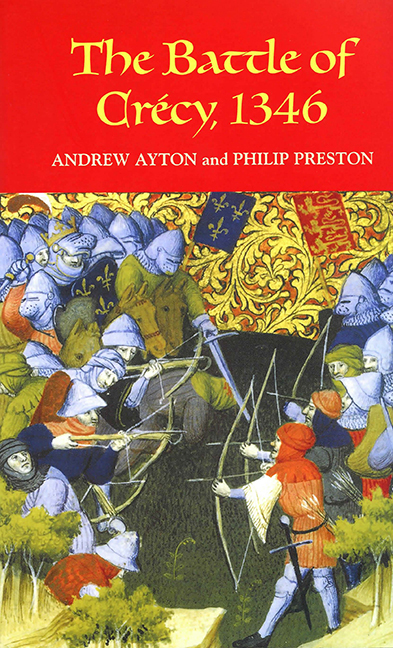5 - The English Army at Créc
from The English
Published online by Cambridge University Press: 25 October 2017
Summary
The battle of Crécy was by any standards a momentous event, and it has certainly not been neglected by historians. It is, therefore, a little curious that few of those who have studied this battle have devoted much attention to the composition of the English army. While a great deal has been written about weaponry and tactics, the men who fought and won at Crécy have been left in the shadows. Until recently, the only historian to examine the army in detail and publish the results was Major General the Honourable George Wrottesley, whose Crecy and Calais appeared a little over a hundred years ago. A considerable quantity of valuable primary source material was brought together in this volume and it has become a much-cited work. It is, therefore, all the more unfortunate that Wrottesley's collection of documents is riddled with omissions and transcription errors. Nor did the editor subject his material to the full and rigorous analysis that it deserved. We might regret that his more talented and better-qualified contemporary, J.E. Morris, the true pioneer in the field of Edwardian army studies, did not find time to do so. What is perhaps surprising is that, for the better part of a hundred years, no one else tackled the job.
For an explanation of this neglect we probably need look no further than the sources, which are voluminous yet frustratingly incomplete and often infuriatingly imprecise. Matters are complicated still further by the unusual length of the campaign, which lasted for over a year from the landing at La Hougue until the surrender of Calais, and by the size of the English army, which appears to have grown to gargantuan proportions during the siege of Calais. It may well be that more than one historian has toiled over these materials, only to abandon the attempt. But despite the problems, the composition of the English army demands close attention for several reasons. In a world in which politics and war were closely intertwined, in which the political and military elites were composed of essentially the same men, a major Edwardian army, especially when led personally by the king, was as much a political entity as a military one.
- Type
- Chapter
- Information
- The Battle of Crécy, 1346 , pp. 159 - 252Publisher: Boydell & BrewerPrint publication year: 2005

